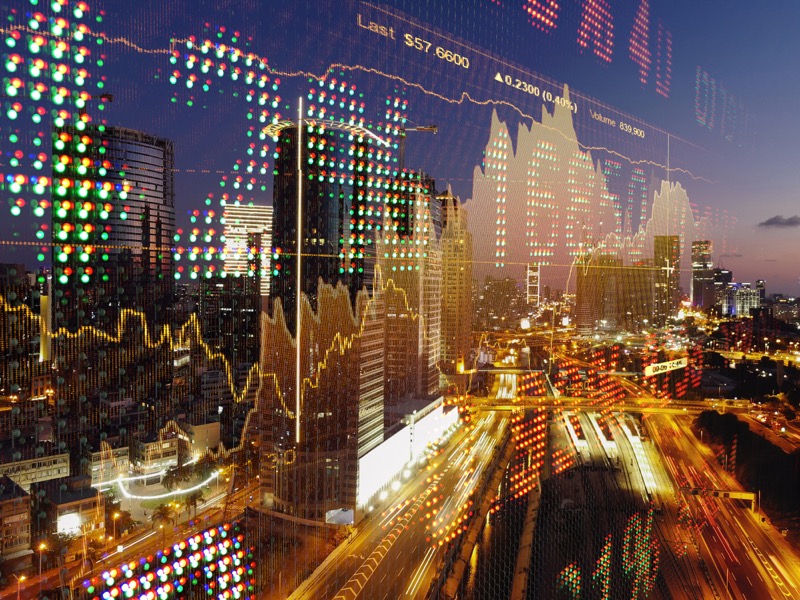
The Russia-Ukraine conflict has led some investors to revisit their views on ESG, with one asset manager even expanding its definition of ESG to include weapons.
But Roger Beauchemin, president and CEO of Montreal-based Addenda Capital Inc. and chair of the Responsible Investment Association, says existing ESG frameworks still work for investors as long as they remain clear about their values. The Russia-Ukraine conflict simply becomes “more important and more immediate in objectives than longer-dated things which are still important, like climate,” he said.
For example, Beauchemin sees a potential role for Canadian energy in mitigating the effects of the Ukraine conflict, but said the overall picture for the sector remains the same.
“There is no doubt that Canadian energy is ethical. In the short term, can we use that as leverage to make sure that the power of Russia is minimized in Europe? Can we help avoid dislocations in Europe and elsewhere? We don’t have those answers, but it doesn’t change the fundamentals of Canadian energy. The sector still has to change.”
He still believes the economy must move away from fossil fuels “as quickly as possible so as to mitigate the effects of climate change,” and said engagement remains the best way to achieve that — particularly when our economy still relies heavily on energy from fossil fuels.
“We need to change that reliance; we need to transform the sector,” he said. “But it’s not by divesting that we’re going to get the best effects. You don’t clean the kitchen by avoiding the sink, the floor and the stove.”
Nor has the conflict changed Beauchemin’s views on investing in weapons. “A weapon is a weapon. If you have a values focus that calls that out, then there’s no way that weapon can be good,” he said. “It’s like tobacco — you just can’t make tobacco work well for health.”
While Beauchemin favours an engagement strategy in normal circumstances, he emphasized that divestment can work in specific circumstances.
“Given that there’s shooting going on and innocent people being killed, [one] thing to do is to use your portfolio as a weapon,” Beauchemin said. “It makes complete sense to me to use the economics of it and to simply stop [investing].”
Russia’s invasion of Ukraine has prompted many institutional investors to divest from the country. While divestment has been driven by sanctions, investment restrictions and lack of liquidity, ESG motivations have also featured in these decisions.
Beauchemin acknowledged that divestment will harm ordinary Russian citizens, but “probably the only way we can get this regime to back off is to isolate them once again. We’re creating a new Iron Curtain,” he said. “Disengagement and isolation will hurt the population to a level where the government can no longer get support.”
But not all investors or companies are eliminating their exposure to Russia, including some with a longstanding reputation for sustainability.
Paris-based Danone SA, which has strong sustainability ratings from S&P Global and Sustainalytics, is maintaining operations in Russia but has suspended all investment in the country. On March 8, Danone’s CEO explained the decision to the Financial Times: “We have a responsibility to the people we feed, the farmers who provide us with milk and the tens of thousands of people who depend on us.”
“You’ve got people, you’ve got cattle, you’ve got farms. If you stop that, you create problems in the food supply chain,” Beauchemin said. “And I can understand that a company may think, ‘We’d rather stay local and keep Russians fed.'”
International investing in general, Beauchemin said, comes with risk. “Russia is not the only country with some very critical issues around its governance,” he said, citing the example of China breaking its treaty with the U.K. in regards to Hong Kong.
“There’s a risk premium to certain countries. [There] are issues that provide opportunity as well as risk,” Beauchemin said. “Should we pile on to investors who were there [long before the conflict], trying to make investments to make sure that economic progress was being achieved in that country? No.”
A research team led by Jeffrey Sonnenfeld at the Yale Chief Executive Leadership Institute has compiled a list of major companies that are withdrawing, suspending, scaling back or remaining in Russia. As of Thursday, 150 companies have fully withdrawn, 178 have suspended operations and 74 have scaled back (including Danone).